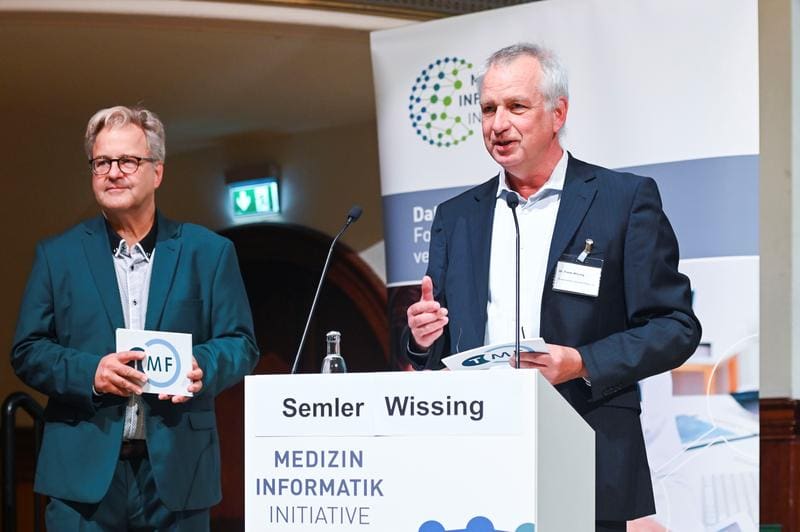POLAR_MI data show that 38 percent of patients over the age of 65 received potentially unsuitable medication
More than 300 experts discussed the importance of digital health data for research and patient care at the symposium of the Medical Informatics Initiative (MII) on September 11, 2025 in Jena. Under the motto “From the region to Europe: Using health data ŌĆō strengthening research ŌĆō improving care”, the MII presented current research results and perspectives on the use of health data.
The symposium, opened by the Head of the Technologies in the Life Sciences Division at the Federal Ministry of Research, Technology and Space, showed the progress of the MII, which has been funded since 2015. The initiative has created a powerful data infrastructure that links medical data sets from university medicine. Initial analyses illustrate the influence of digitization on care. For example, the project POLAR_MI used routine data from over 700,000 treatment cases to show that 38 percent of patients over the age of 65 were receiving potentially unsuitable medication. In addition, associations with gastrointestinal bleeding and hypoglycemia were identified, underlining the use of MII’s drug safety and pharmacovigilance infrastructure .
An international real-world evidence study with data from 18 countries, including MII data integration centers, analyzed drug shortages. The results showed significant declines in the use of certain substances and country-specific differences in dosage and treatment duration, highlighting the importance of global data analysis for care strategies.

With regard to the European Health Data Space (EHDS), the role of the MII Research Data Portal for Health (FDPG) as a central building block was discussed. The MII has created the prerequisites for the EHDS with standardised data, whereby close cooperation between science, industry and authorities is considered essential. The MII, coordinated by TMF e.V. and funded with over 480 million euros until 2026, drives the digital transformation in medicine and strengthens cooperation between university hospitals and regional partners.
The symposium took place as part of the annual meeting of the German Society for Medical Informatics, Biometry and Epidemiology .
About the Medical Informatics Initiative
The MII is a Germany-wide innovation project that makes medical data from care usable ŌĆō for research and for better patient care. University hospitals, research institutions and partners from the field work closely together to drive the digital transformation in medicine. The MII is coordinated by TMF e.V., together with the Association of University Hospitals in Germany (VUD) and the Association of Medical Faculties of the Federal Republic of Germany (MFT). The Federal Ministry of Research, Space and Technology (BMFTR) is funding the MII with a total of over 480 million euros up to and including 2026.
The MII has been building data infrastructures at the university hospitals since 2018. Using a wide range of use cases ŌĆō from intensive care to cancer medicine ŌĆō the MII partners have already demonstrated the added value of their IT solutions in practice. The focus of the expansion phase (2023-2026) is on expanded cooperation between the university hospitals and their cooperation with new partners, especially from regional care.
An important component of this infrastructure is the Research Data Portal for Health (FDPG). It is intended to serve as a central point of contact for all researchers who want to use data and biosamples from the University Medical Center.
This year’s MII Symposium 2025 took place in conjunction with the annual meeting of the German Society for Medical Informatics, Biometry and Epidemiology (GMDS) ŌĆō the largest congress of these disciplines in the German-speaking world.
Editor: X-Press Journalistenb├╝ro GbR
Gender Notice. The personal designations used in this text always refer equally to female, male and diverse persons. Double/triple naming and gendered designations are used for better readability. ected.




